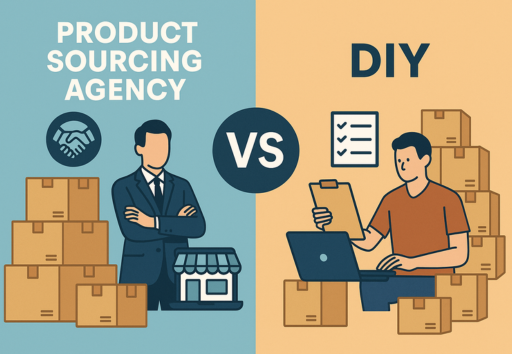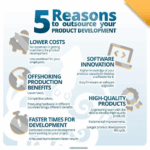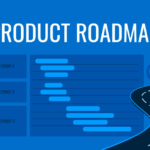When it comes to launching a product-based business or growing an e-commerce store, sourcing the right products is crucial. But the big question is: should you do it yourself, or hire a product sourcing agency?
Both options have their pros and cons, and the right choice depends on your business stage, budget, and risk tolerance. This guide breaks down both paths to help you make an informed decision.
Understanding the Role of a Product Sourcing Agency
Having the right business partner can simplify the entire sourcing process. Instead of managing everything yourself, you benefit from professionals with market knowledge, reliable supplier networks, and strong negotiation skills.
Product sourcing services often handle supplier research, quality checks, and shipping coordination making them especially useful for startups or busy entrepreneurs looking to save time and avoid costly mistakes.
Doing It Yourself
Doing it yourself means you’re in control of every step from researching suppliers to negotiating terms and managing logistics. This can be satisfying, especially for founders who like being hands-on and have the time to dedicate to it.
That said, DIY (Do It Yourself) as a self-Managed buying process can also be risky. Without experience, you’re more likely to encounter scams, quality issues, and communication challenges especially when working across different countries and languages.
Cost Comparison: Short-Term vs. Long-Term Value
One of the biggest reasons people choose an in-house approach for sourcing is cost. On the surface, doing it yourself seems cheaper, there are no agency fees, and you have full budget control. But that’s only part of the story.
Sourcing agencies often have access to better bulk pricing and can negotiate more favorable terms. They may also help avoid mistakes that could result in expensive returns, shipping delays, or bad inventory.
In the long run, the added cost of an agency might be less than the losses that come with avoidable supplier issues. It’s about balancing upfront savings with long-term efficiency.
Time Investment and Efficiency
Buying products on your own can take a lot of time researching, contacting suppliers, verifying credentials, waiting for replies, negotiating, and managing shipping. For solo founders or small teams, this can quickly become too much to handle. If you’re also managing product development services alongside sourcing, the workload can grow even more demanding.
Risk Management: Who’s Better Prepared?
There’s always some risk in product sourcing whether it’s a bad supplier, poor product quality, or delayed shipments. The key is how well those risks are managed. Agencies typically have processes in place to deal with these issues.
They perform quality checks, vet suppliers, and often have backup plans or insurance options in case something goes wrong. When getting stock on your own, you’re responsible for spotting red flags and dealing with any issues. If you’re new to buying products or international trade, the risk can be significantly higher.
Quality Control and Supplier Communication
Clear communication with suppliers is essential, especially when working with overseas factories. Product Acquisition often has bilingual teams and cultural insight to reduce confusion and maintain quality through inspections. If you go the DIY route, you’ll need to handle all communication yourself which can be challenging without experience.
When DIY Might Be the Right Choice
There are situations where acquiring products on your own makes more sense. Here are a few examples:
- You’re just starting out and testing a small batch of products
- Your budget is limited and can’t accommodate agency fees
- You already have supplier experience or contacts
- You’re buying from local or domestic suppliers.
- You want complete control over every detail of the process
If you’re resourceful and have time to invest, DIY can be a valuable way to learn the ropes and build stronger supplier relationships firsthand.
When to Hire a Product Sourcing Agency
Hiring a product sourcing firm may be a smarter choice when you need expert support to manage complex supply chains or scale efficiently.
- You’re scaling fast and need more efficiency and reliability
- Your product involves complex manufacturing or customization
- You’re supplying from countries with language or cultural barriers
- You’ve had bad experiences with suppliers in the past
- You want to reduce your workload and focus on growing the business
In these scenarios, a good sourcing agency like Brand New MD can offer peace of mind, better product quality, and quicker delivery.
Conclusion
Both DIY and hiring a sourcing agency have their place in the product development journey. DIY offers more control and can be cost-effective, but comes with steep learning curves and risks.
Ultimately, the better option depends on your budget, experience level, and how much time you can dedicate to sourcing. Choose the one that aligns with your current needs and be open to switching as your business evolves.
Frequently Asked Questions
-
Is it more cost-effective to source products myself?
A: It can be especially for small batches or when you’re just starting. But mistakes, shipping errors, or poor-quality goods may cost more in the long run.
-
Can a sourcing agency guarantee product quality?
A: No one can guarantee perfection, but good agencies conduct inspections, work with trusted suppliers, and handle quality control better than most first-timers.
-
How do I know if a vendor management company is trustworthy?
A: Look for agencies with verified reviews, client testimonials, and clear communication. Ask about their process, supplier networks, and transparency.
-
Can I switch from DIY to using an agency later?
A: Absolutely. Many businesses start with DIY sourcing to learn the basics, then shift to agencies as they grow and need more support or scale faster.








